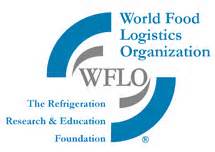The Alexandria, Virginia, USA-headquartered World Food Logistics Organization (WFLO), a core partner of the Global Cold Chain Alliance (GCCA), has received a Technical and Operational Performance Support (TOPS) grant to evaluate post-harvest capacity-building activities in Sub-Saharan Africa. The program is a USAID/Office of Food for Peace-funded learning initiative designed to “generate, capture, disseminate and apply information, knowledge and promising practices in development food assistance programming to ensure that more communities and households benefit from the US government’s campaign to address the global hunger problem.”
 Since 2010, WFLO has been working with the University of California-Davis and the World Vegetable Center (AVRDC) on a USAID-funded pilot project to establish a Post-Harvest Training and Services Center (PTSC) in Arusha, Tanzania.
Since 2010, WFLO has been working with the University of California-Davis and the World Vegetable Center (AVRDC) on a USAID-funded pilot project to establish a Post-Harvest Training and Services Center (PTSC) in Arusha, Tanzania.
“We are delighted to receive this important grant because we believe the PTSC has dramatically improved post-harvest food handling and preserved critically needed food for the people of Tanzania,” said Dr. Lisa Kitinoja, WFLO’s senior technical advisor, who has led this program from its inception. “If we can replicate this success across more nations, it will improve the quality of life for millions of people.”
The PTSC model includes five interacting components: training of post-harvest trainers, local farmer training programs, post-harvest demonstrations, services such as cold storage, and a retail shop for post-harvest tools and supplies. The original concept for the PTSC model arose from a 2009 WFLO Workshop focused on appropriate post-harvest technologies for India, Egypt, Rwanda, Benin, Ghana, Kenya and Indonesia, and a similar project that Kitinoja worked on in Cape Verde for the Millennium Challenge Corporation. In all these cases during the assessment and early field work stages, it was found that the basic post-harvest information, tools and supplies most needed for improving post-harvest handling and improving outcomes were difficult to find or completely missing. This grant will give WFLO the opportunity to evaluate the PTSC as a model for post-harvest loss reduction in other developing countries.
WFLO post-harvest experts will visit three key sites in Ethiopia, Tanzania and Uganda where master trainers are currently working and where the PTSC is located. They will conduct a complete evaluation, make recommendations, and offer workshops for local stakeholders and consultants on project monitoring and evaluation practices.





